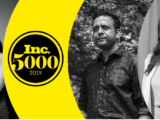
You understand the importance of hiring employees who will positively contribute to the overall culture of your organization. Determining whether a candidate has the skills and ability to perform specific functions is only part of the picture. To create a team where employees are engaged, collaborative and want to stay, use the interview to get at culture and values alignment too. What can this person add to your team?
Depending on the organization, role and interviewer’s style, questions can be posed in unique and creative ways or more straightforward and traditional ways. The real creativity comes in deploying the art of creative listening to glean both overt and subtle cues from a candidate’s response.
MASTER THE ART OF CREATIVE LISTENING
So, how can you brush up on your creative listening skills? During the interview, ask yourself these questions:
- Does the candidate provide an appropriate amount of descriptive detail?
- Are they able to provide specific examples?
- Are they able to comfortably answer detailed follow-up questions?
- Do they put thought into their responses and bring new insight into the topic?
- Do they respond with real-life examples, rather than answering with hypotheticals?
- Do they have questions for you, showing that they have done their homework on your company and the specific job for which they are interviewing?
LISTEN CLOSELY TO IDENTIFY OUTSTANDING CANDIDATES
Here are 11 ways the power of creative listening can help you find the right candidate:
- Understand what drives them. Ask, “What gets you up in the morning?” Is their response related to professional motivators, personal ones, or both? How will their drivers play into what you need to move your company forward?
- Get to know who they are as a person. You could ask fun questions like, “When you were a kid, what did you want to be?” or “If you had a superpower, what would it be and why?” You can also be straightforward and simply ask, “What makes you unique?”
- Learn more about their integrity. “Tell me about a time you were put in a situation that you felt compromised your ethics. What did you do about it?” Or, present an industry-specific situation and ask how they would handle it.
- Find out how collaborative or team-oriented they are. “What have you done in the past to enhance collaboration among your team?” Information on resumes is a good place to find topics. For instance, if they played a team sport or volunteer, ask what they’ll bring from those experiences into the job. You can learn how collaborative they are, or how important it is for them to know they are having an impact on the company’s success.
- Discern flexibility and adaptability. A question such as, “How do you like to structure your day?” can reveal if they are linear and process-oriented (and maybe rigid), or if they like to work within a framework but are at-the-ready to pivot. Or ask, “Tell us about a work situation that truly changed the way you work. What challenges did you face? What was the outcome?”
- Learn how they form and view professional relationships. “How would your former boss describe you? A colleague? A friend? Why?” Do they provide a standard answer, or is it unique? Can they provide good examples as to why they chose their response?
- Do they value professional development and in what areas do they hope to grow? “What are you really good at, and what do you struggle with that you wish you were good at?” or “What talent do you wish you had?” It’s essential that candidates are motivated and interested in growing professionally and personally.
- How emotionally intelligent are they? Ask questions that get to empathy, patience and understanding. Simply asking candidates what emotional intelligence means to them is often revealing, as is, “What is important to you–what do you care about?”
- Ask for real-world examples, especially when inquiring into specific skill sets and experience. The style and detail around the response are almost as important as the answer itself. For instance: “Tell me about a project that you worked on and how it saved your company money or time,” or “When you’ve been in a situation with multiple tasks assigned to you at once, how did you accomplish them on time?”
- Ask questions to help you understand problem-solving capabilities. “Tell me about a colleague or a manager who disagreed with you and how you handled it.” Or, ask about a time when a project went sideways and how they got things back on track.
- Beyond the interview, reference checks are critical. The questions you ask in this setting are also important. If a reference gives a glowing recommendation and you’d like to hear the whole story, warts and all, ask, “You clearly think very highly of Sue and want her to find a job that’s a great fit. Are there any circumstances that you don’t think would be a good fit for her?” Or, ask about situations where this person was able to shine and, likewise, conditions that were not ideal for this person.
Remember, you are looking for someone who will positively add to your culture. This is different than fitting into your. By inviting in diversity and seeing how each employees unique experience and perspective can contribute to the whole, you will expand your team’s resiliency, creativity, innovation and success.




